第20章 THE THIRD - INSOMNIA(8)
The distressful alternation between nights of lucid doubt and days of dull acquiescence was resumed with an intensification of its contrasts.The brief phase of hope that followed the turn of the fighting upon the Maine, the hope that after all the war would end swiftly, dramatically, and justly, and everything be as it had been before--but pleasanter, gave place to a phase that bordered upon despair.The fall of Antwerp and the doubts and uncertainties of the Flanders situation weighed terribly upon the bishop.He was haunted for a time by nightmares of Zeppelins presently raining fire upon London.These visions became Apocalyptic.The Zeppelins came to England with the new year, and with the close of the year came the struggle for Ypres that was so near to being a collapse of the allied defensive.The events of the early spring, the bloody failure of British generalship at Neuve Chapelle, the naval disaster in the Dardanelles, the sinking of the Falaba, the Russian defeat in the Masurian Lakes, all deepened the bishop's impression of the immensity of the nation's difficulties and of his own unhelpfulness.He was ashamed that the church should hold back its curates from enlistment while the French priests were wearing their uniforms in the trenches; the expedition of the Bishop of London to hold open-air services at the front seemed merely to accentuate the tub-rolling.It was rolling the tub just where it was most in the way.
What was wrong? What was wanting?
The Westminster Gazette, The Spectator, and several other of the most trusted organs of public opinion were intermittently discussing the same question.Their discussions implied at once the extreme need that was felt for religion by all sorts of representative people, and the universal conviction that the church was in some way muddling and masking her revelation."What is wrong with the Churches?" was, for example, the general heading of The Westminster Gazette's correspondence.
One day the bishop skimmed a brief incisive utterance by Sir Harry Johnston that pierced to the marrow of his own shrinking convictions.Sir Harry is one of those people who seem to write as well as speak in a quick tenor."Instead of propounding plainly and without the acereted mythology of Asia Minor, Greece and Rome, the pure Gospel of Christ....they present it overloaded with unbelievable myths (such as, among a thousand others, that Massacre of the Innocents which never took place)....bore their listeners by a Tibetan repetition of creeds that have ceased to be credible....Mutually contradictory propositions....Prayers and litanies composed in Byzantine and mediaeval times....the want of actuality, the curious silliness which has, ever since the destruction of Jerusalem, hung about the exposition of Christianity....But if the Bishops continue to fuss about the trappings of religion....the maintenance of codes compiled by people who lived sixteen hundred or two thousand five hundred years ago....the increasingly educated and practical-minded working classes will not come to church, weekday or Sunday."The bishop held the paper in his hand, and with a mind that he felt to be terribly open, asked himself how true that sharp indictment might be, and, granting its general truth, what was the duty of the church, that is to say of the bishops, for as Cyprian says, ecelesia est in episcopo.We say the creeds; how far may we unsay them?
So far be had taken no open action against Chasters.Suppose now be were to side with Chasters and let the whole diocese, the church of Princhester, drift as far as it chose under his inaction towards an extreme modernism, risking a conflict with, and if necessary fighting, the archbishop....It was but for a moment that his mind swung to this possibility and then recoiled.
The Laymen, that band of bigots, would fight.He could not contemplate litigation and wrangling about the teaching of the church.Besides, what were the "trappings of religion" and what the essentials? What after all was "the pure gospel of Christ" of which this writer wrote so glibly? He put the paper down and took a New Testament from his desk and opened it haphazard.He felt a curious wish that he could read it for the first time.It was over-familiar.Everything latterly in his theology and beliefs had become over-familiar.It had all become mechanical and dead and unmeaning to his tired mind....
Whippham came with a reminder of more tub-rolling, and the bishop's speculations were broken off.